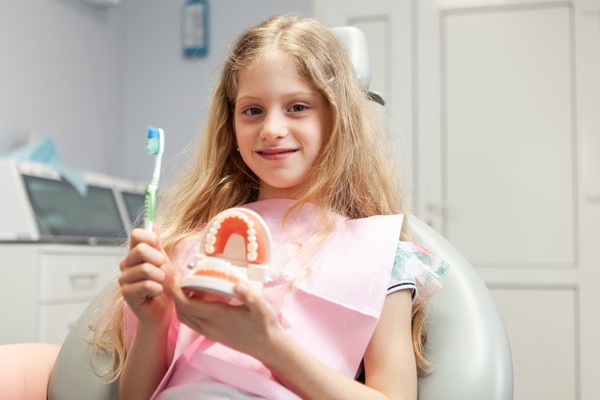Baby Root Canal Information from a Pediatric Dentist

The thought of a baby root canal may spark fear in parents, however, it is important to know that pediatric dentists ensure a safe and secure procedure, thus restoring the child's tooth back to its original condition, both functionally and aesthetically. Nonetheless, parents are eager to understand how the procedure works, which can be helpful in reducing anxiety. Additionally, when parents understand the procedure, they are more able to explain to their child throughout the process.
What is a baby root canal?
Below is a quick overview of baby root canals, including what they are and how pediatric dentists perform the procedure.
Defining the baby root canal procedure
A baby root canal is similar to a traditional root canal for adults, however, it is geared toward baby teeth, also known as the primary teeth. The procedure is done in order to combat tooth loss, restore good oral health, and renew the tooth so that it can get back to functioning and appearing normally. Below is a list of each step of a typical baby root canal:
- The pediatric dentist will administer a numbing agent and sedative to keep the child comfortable during the procedure
- Once the child feels comfortable, the baby root canal procedure can begin. The pediatric dentist will remove the infected portions of the pulp, which is located in the inner tooth
- After removal, the dentist will clean and disinfect the pulp chamber to ensure that it is free of bacteria and debris
- Next, gutta-percha will be applied to the empty cavity of the tooth to seal it off and protect it from future damage. Gutta-percha is a rubbery material used in dentistry
- Lastly, the pediatric dentist will place a dental crown to complete the baby root canal procedure
In most cases, a baby root canal procedure will use a composite resin dental crown as this is considered a temporary solution. Since baby teeth eventually fall out, dentists rarely use gold or ceramic crowns, which is considered a permanent fix. If the child is really young then a permanent material will be used; however, if the child is near the age of tooth loss then composite resin is likely to be used.
The role of a pediatric dentist
Pediatric dentists are experts at performing procedures on children, toddlers, and adolescents. They undergo extensive training to learn how to be patient and gentle. As it relates to baby root canals, pediatric dentists carefully perform the procedure in a comfortable setting so that the child feels safe and secure.
Does your child need a baby root canal?
Parents that want more information on baby root canals can consult with a pediatric dentist to learn more about specific details. Each patient is different, meaning they will have varying needs. A consultation appointment can identify goals, needs, and preferences, all of which will be used by the pediatric dentist during the procedure. Reach out today to learn more or to schedule an appointment.
Request an appointment here: http://www.starkidsdental.com or call Star Kids Dental & Orthodontics at (818) 483-9064 for an appointment in our Burbank office.
Check out what others are saying about our services on Yelp: Read our Yelp reviews.
Recent Posts
Dental fillings for children play a crucial role in restoring teeth affected by cavities or minor damage. When detected early, cavities can be treated quickly and effectively with a filling, preventing further decay and preserving the natural tooth. Pediatric dentists utilize techniques and materials specifically designed for children to ensure safety, comfort, and long-lasting results.Tooth…
If your child has misalignments or crooked teeth, you may be wondering what the options are. A pediatric orthodontist can answer all your questions and recommend the right treatment plan. You may have a lot of questions before diving into orthodontic treatment, and there are certain ones that you should ask at the consultation. A pediatric…
Infants can benefit from seeing a pediatric dentist when primary teeth begin to erupt. Primary teeth are placeholders for permanent teeth and should receive the same attention, including appropriate home care. Primary teeth are crucial to a baby's health and development. Therefore, dentists encourage parents to begin an infant's oral hygiene routine as soon as possible…
Dental sealants are thin coatings that are applied to the chewing surfaces of the back teeth to prevent decay. Grooves and pits in these teeth make them susceptible to cavities because they may collect food and bacteria. Sealants for the teeth are an easy and painless technique to protect young ones' teeth from decay. This…


